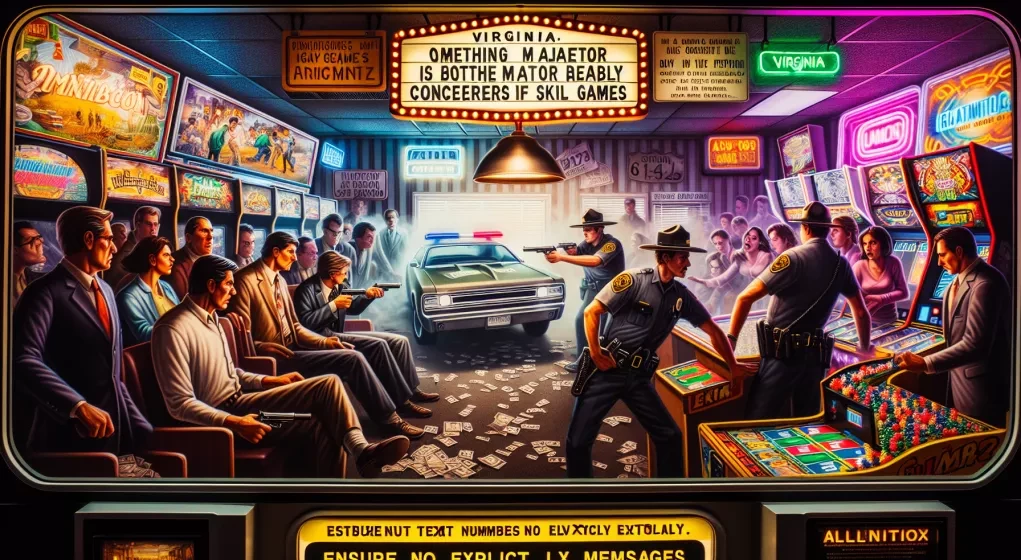In the pulsing heart of Virginia, where the echoes of civic debate resound through the corridors of power, there lies an issue as contentious as any: the fate of skill games within the commonwealth’s borders. Once temporary saviors for beleaguered small businesses amid the pandemic’s financial storm, these slot-like terminals—where cash prizes are the fruit of both chance and challenge—now dance upon the razor’s edge of legality.
Their dance began when the state, in an attempt to salve the wounds left by the pandemic, extended a hand to allow these skill games to operate under the law’s grace. Yet, no sooner had these machines’ bright lights flickered to life in taverns and truck stops like the beacon fires of aid to the struggling outlets, than the pendulum swung towards their prohibition on July 1st of 2021.
The ensuing legal battle paints a vivid tableau; prominently featured is a lawsuit by Sadler Brothers Oil, akin to a modern-day David, slinging stones at what it sees as an overreaching Goliath in the state of Virginia. Their initial triumph, a court-ordered injunction, allowed the games to continue as legal challenges spiraled. But triumph turned to ashes when the Virginia Supreme Court, in a sobering blow, decreed that the injunction was unwarranted as Sadler’s gambit on First Amendment grounds faltered.
Amid this legal labyrinth, the state’s lawmakers find themselves locked in a stalemate. These legislators, some champions of the skill games’ existence, clash with Richmond’s pencil pushers on the nuances of their regulation. House Bill 590 stands as the battleground where amendments and overhauls clash like titans, its every iteration from initial draft to Senate refinement sparking wide-eyed speculation about its final form.
Eyes now turn to the legislative conference committee, that crucible where six appointed lawmakers, descendants of Athena’s own wisdom, will forge a compromise. This committee, a fusion of the Senate Finance and House Appropriations virtues, seeks to blend the House’s vision with the Senate’s sage amendments—a 30% tax here, a $3,000 registration fee there—into a singular piece of legislation palatable to all.
If alchemy prevails and a resolution coalesces that can garner majority support across the divided terrains of Virginia’s legislative chambers, it will ascend to the desk of Governor Glenn Youngkin. The governor stands ready, a beacon of optimism who sees in these skill games not just machines, but keys to unlock a bulwark against the shadows of illegal gambling.
So, the tale unfolds, a saga not of merely machines, but of the very spirit of governance and the quest for economic solace in a recovering world. Virginia, laid bare upon the stage of history, inching ever closer to the denouement of the skill games drama, where compromise is the coveted grail, and the well-being of its citizens the ultimate prize.






